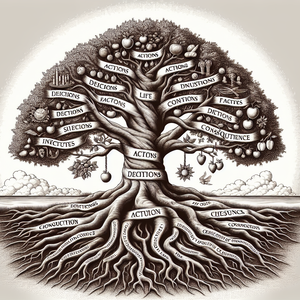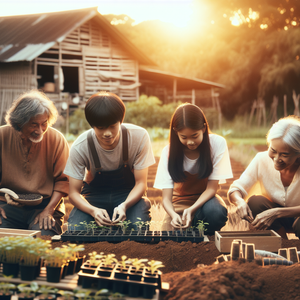Beyond Glass: Riedel's Commitment to Sustainability

One of the most significant ways Riedel contributes to sustainability is through the use of recycled materials in its production processes. Recognizing the environmental impact of glass manufacturing, Riedel has established a robust recycling program that repurposes waste glass, transforming it into high-quality products. The energy savings from using recycled glass are substantial; studies suggest that producing glass from recycled materials can use up to 40% less energy than production from raw materials. A prime example of Riedel’s commitment to recycling is their “Riedel O” series, a collection of stemless wine glasses made from recycled glass. This line not only showcases Riedel’s innovative design and quality but also serves as a testament to the brand's dedication to environmental responsibility. By incorporating recycled materials into their luxury products, Riedel sets an industry standard for sustainability in high-end goods.
Sustainable Sourcing Practices
Riedel’s commitment to sustainability extends beyond the glass itself to the sourcing of raw materials. The company carefully selects suppliers who adhere to environmentally friendly practices, ensuring that the raw materials used in their products are both high-quality and sustainably sourced. This focus on sustainability is reflected in Riedel’s partnerships with suppliers who share similar values, emphasizing a holistic approach to environmental responsibility throughout their entire supply chain. By choosing partners who prioritize sustainability, Riedel ensures that its materials are sourced in a manner that minimizes environmental harm, further reinforcing its commitment to eco-friendly practices. This comprehensive approach helps Riedel maintain not only the quality of its products but also the integrity of its brand image.
Energy Efficiency and Waste Reduction
In addition to using recycled materials and sustainable sourcing, Riedel has made significant strides in improving energy efficiency within its manufacturing facilities. The company has invested in advanced technologies and upgraded its machinery to more energy-efficient models, which consume less power while meeting high production standards. These advancements contribute to a reduced carbon footprint, showcasing Riedel's dedication to minimizing its environmental impact. Moreover, Riedel has implemented waste reduction strategies aimed at minimizing scrap material during production. By continuously analyzing and refining their processes, the company has succeeded in improving recycling rates and reducing waste significantly. This dual focus on energy efficiency and waste reduction not only benefits the environment but also enhances Riedel’s operational efficiency, positioning the company as a leader in sustainable glassware production.
Community Engagement and Education
Riedel recognizes that sustainability is a shared responsibility, and as such, actively engages with its community and customers to promote eco-friendly practices. The company conducts workshops and events designed to educate consumers about the importance of sustainability within the luxury goods market. These initiatives encourage customers to make informed choices and foster a culture of environmental consciousness. Additionally, Riedel participates in local environmental initiatives, including tree-planting programs and community clean-up events. Such efforts not only enhance the company’s brand image but also demonstrate its commitment to giving back to the community and fostering a positive environmental impact.
Riedel Crystal of America stands as a shining example at the intersection of luxury and sustainability, demonstrating that exquisite craftsmanship can coexist with environmental responsibility. Through their initiatives in recycling, sustainable sourcing, energy efficiency, and community engagement, Riedel is paving the way for a more sustainable future in the crystal industry. As consumer demand for transparency and eco-friendly practices continues to rise, Riedel's steadfast commitment to sustainability resonates with conscious buyers and sets a benchmark for others in the luxury market. By choosing Riedel, customers can indulge in beautifully crafted crystal products while supporting a brand dedicated to making a meaningful impact on the planet.
Sustainability Manager
Luxury brands, manufacturing companies, and corporate sustainability consultancies
Core Responsibilities
Develop and implement sustainability strategies across production processes to enhance energy efficiency and waste reduction.
Analyze environmental impact metrics and report on sustainability initiatives' effectiveness and progress.
Collaborate with suppliers to ensure sustainable sourcing practices are integrated into the supply chain.
Required Skills
Strong understanding of sustainability principles and environmental regulations.
Excellent analytical skills and experience with sustainability reporting frameworks (e.g., GRI, CDP).
Proven project management capabilities with a focus on cross-functional collaboration.
Glass Production Engineer
Glass manufacturers, luxury home goods companies, and industrial production firms
Core Responsibilities
Oversee the glass manufacturing process, ensuring production efficiency while adhering to sustainability goals.
Implement advanced technologies to improve energy consumption and reduce waste during production.
Conduct regular assessments of production equipment and processes to identify areas for improvement.
Required Skills
Bachelor's degree in Materials Science, Engineering, or a related field.
Experience with glass manufacturing processes and machinery.
Familiarity with lean manufacturing techniques and energy-efficient technologies.
Marketing Specialist for Sustainable Products
Luxury brands, eco-conscious product companies, advertising agencies
Core Responsibilities
Create and execute marketing campaigns that highlight the sustainability initiatives and eco-friendly products of the brand.
Conduct market research to understand consumer behavior regarding sustainable luxury products.
Collaborate with product development teams to align marketing strategies with sustainability messaging.
Required Skills
Strong background in digital marketing and brand management.
Excellent communication skills with a passion for sustainability and luxury goods.
Experience with content creation and social media marketing focused on eco-friendly initiatives.
Product Designer (Sustainable Glassware)
Glassware manufacturers, product design firms, and luxury home goods brands
Core Responsibilities
Design innovative glassware products that incorporate sustainable materials and manufacturing processes.
Collaborate with production teams to ensure designs are feasible and align with sustainability goals.
Stay updated on trends in sustainable design and materials to innovate product offerings.
Required Skills
Degree in Industrial Design, Product Design, or a related field.
Strong portfolio showcasing experience in sustainable product design.
Proficiency in design software (e.g., CAD, Adobe Creative Suite) and an understanding of sustainable materials.
Community Engagement Coordinator
Nonprofits, corporate social responsibility divisions of companies, and educational institutions focused on environmental stewardship
Core Responsibilities
Develop and lead community outreach programs focused on sustainability education and environmental initiatives.
Organize workshops and events aimed at raising awareness about eco-friendly practices among consumers.
Build partnerships with local organizations to promote sustainability efforts and foster community involvement.
Required Skills
Strong interpersonal and communication skills with a background in community relations or nonprofit work.
Experience in event planning and project management.
Passion for sustainability and ability to engage diverse audiences.


